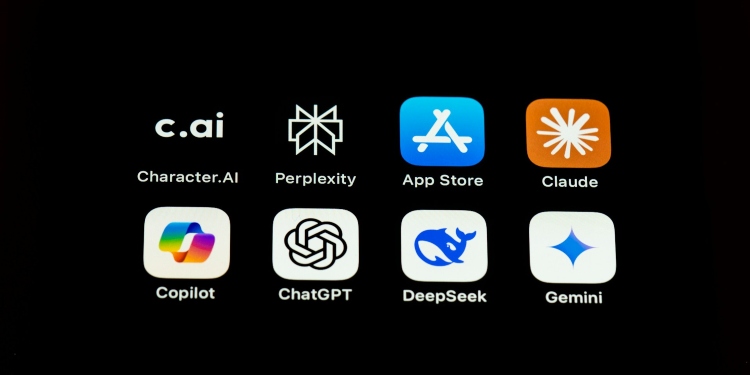Hailed by tech luminaries as a transformative force for humanity, yet feared as a threat to society, AI remains a deeply polarising topic. From ex-Silicon Valley employees to scientific researchers, many voices have sounded the alarm over the perceived risks posed by the unbridled development of increasingly advanced AI tools.
Nicknamed the Godfather of AI, Geoffrey Hinton recently raised the odds of the technology wiping out humanity in the next three decades. But are these doomsday warnings legitimate, or are they largely exaggerated? Let’s take a step back and dive deeper into the concerns around artificial intelligence.
AI’s struggles in the court of public opinion
From policymakers pushing for stricter regulations to artists protesting over the growing rise of deepfakes, AI controversies seem endless. Just recently, A-list actress Scarlett Johansson urged the U.S. government to reinforce AI safety laws after appearing in a fake viral video. Meanwhile, AI-generated explicit images are circulating on the web unchecked, with countless celebrities falling victim to deepfake pornography.
Missteps by tech giants like OpenAI have only deepened public scepticism. In 2023, the brief yet dramatic ousting of Sam Altman sparked widespread concerns about AI safety. Since then, the American startup has faced a wave of high-profile resignations, including the recent departure of safety researcher Steve Adler, who described the direction of AI development as a “very risky gamble.”
Online scandals with real-life repercussions
Many AI controversies start as online firestorms, but they aren’t limited to the virtual space. Last year, Google found itself in a PR disaster when Gemini’s image generator faced backlash over alleged misinformation and distortions of history, ultimately leading to its unexpected removal. While the tech giant has bounced back, reasserting its leadership in the AI race by entering the agentic era, the question of whether AI can be trusted remains unanswered.
Once mere problem-solvers, advanced systems have been caught misleading users, exhibiting troubling deceptive tendencies, and even inciting violence. The Character.ai platform is facing legal action for calling murder a “reasonable response” to parents limiting their teenager son’s screen time. The virtual assistant developed by Chinese start-up DeepSeek also deals with global pushback, appearing loath to discuss sensitive questions related to Taiwan or Tiananmen Square. DeepSeek was additionally accused of breaches of security, with countries like South Korea banning downloads of the chatbot over data protection concerns.
Can the case still be made for AI as a force for progress?
From abuses of trust to security risks, the ethical dilemmas surrounding AI cannot be overlooked. AI development must be regulated to ensure the technology doesn’t end up in the hands of malicious actors or grows so powerful as to go haywire. As major firms invest in AI agents capable of outsmarting humans, prominent scientists warn of the dangers of out-of-control AI systems.
These considerations played centre stage in the latest AI Action Summit, with business and political leaders highlighting the pressing need for global collaboration to address the complexities presented by this emerging technology. In certain fields, these ethical challenges already coexist with tangible benefits.
AI’s transformative potential for good
The practical advantages of AI are evident in sectors like healthcare, where automated systems can streamline administrative tasks, allowing medical professionals to dedicate more time to patient care and monitoring. Similarly, AI solutions can enhance preventive healthcare, improving diagnostic accuracy and leading to less invasive surgeries while reducing human error for complex procedures. Other industries make the most of the technology, such as manufacturing facilities using AI-enabled robots to alleviate the risk of injury in hazardous work environments.
iGaming operators also exploit generative AI to strengthen cybersecurity and prevent fraud. Still, not all gaming platforms are equally secure online. Hence, gamers had better rely on trusted websites to play online slots with real money. Industry specialists thoroughly assess the safety measures of every platform they recommend. Users can access hundreds of options provided by licenced platforms, all committed to fair play and responsible gaming. Before switching to real-money play, first-timers can get the gist of the game by trying free demo versions with no registration.
The need for a nuanced discourse
Concerns about security and privacy are all valid, warranting careful oversight and robust safeguards to mitigate the systemic risks AI may pose. However, AI fearmongering can distort the bigger picture. For instance, a recent report found that AI-related job displacement in the UK may be offset by newly created opportunities. Incidentally, the truth about artificial intelligence often lies in the middle.
David Prior
David Prior is the editor of Today News, responsible for the overall editorial strategy. He is an NCTJ-qualified journalist with over 20 years’ experience, and is also editor of the award-winning hyperlocal news title Altrincham Today. His LinkedIn profile is here.


![7 Best POS Software in the UK [2026 Edition]](https://todaynews.co.uk/wp-content/uploads/2026/02/7-Best-POS-Software-in-the-UK-2026-Edition-360x180.png)





















































![7 Best POS Software in the UK [2026 Edition]](https://todaynews.co.uk/wp-content/uploads/2026/02/7-Best-POS-Software-in-the-UK-2026-Edition-120x86.png)

![7 Best POS Software in the UK [2026 Edition]](https://todaynews.co.uk/wp-content/uploads/2026/02/7-Best-POS-Software-in-the-UK-2026-Edition-350x250.png)


















